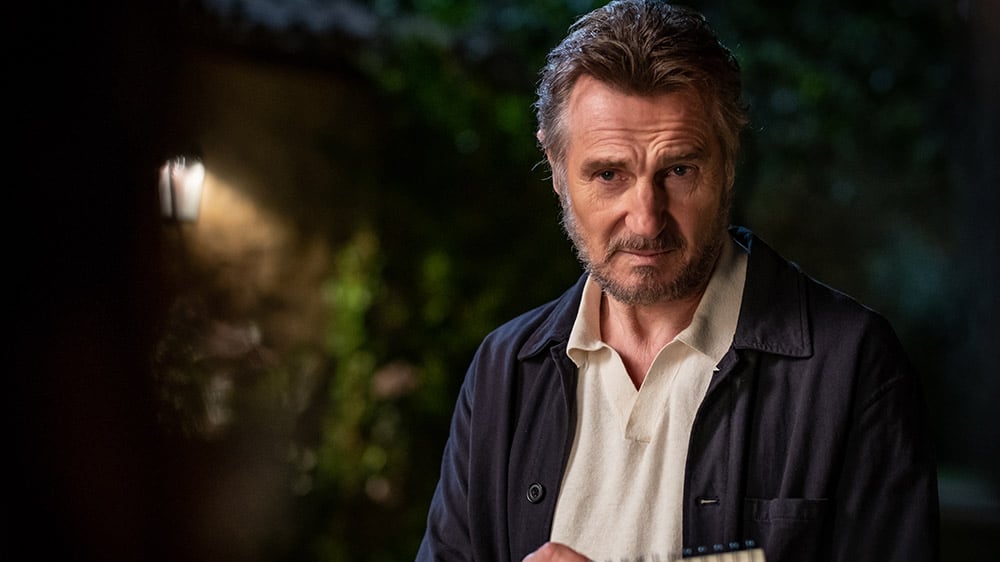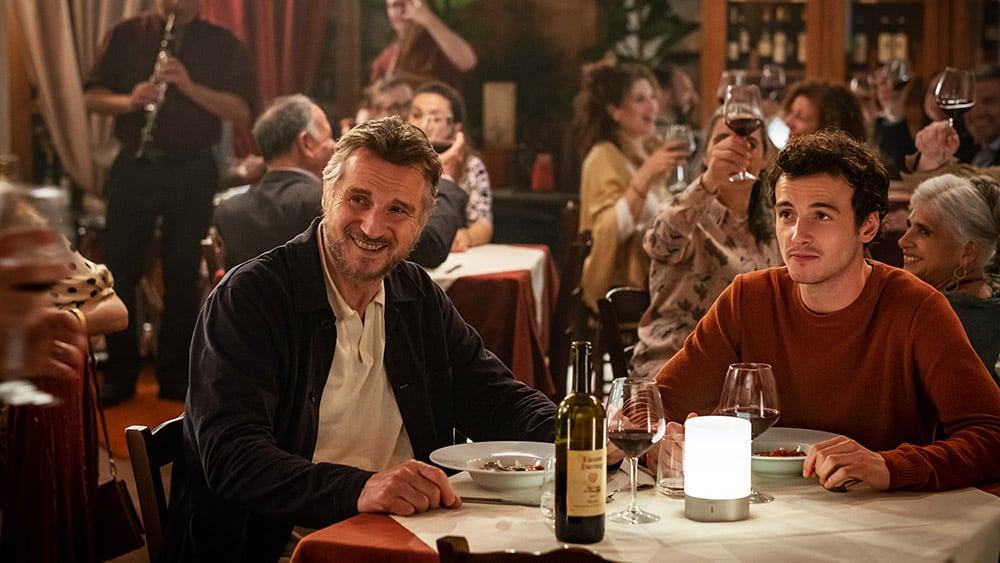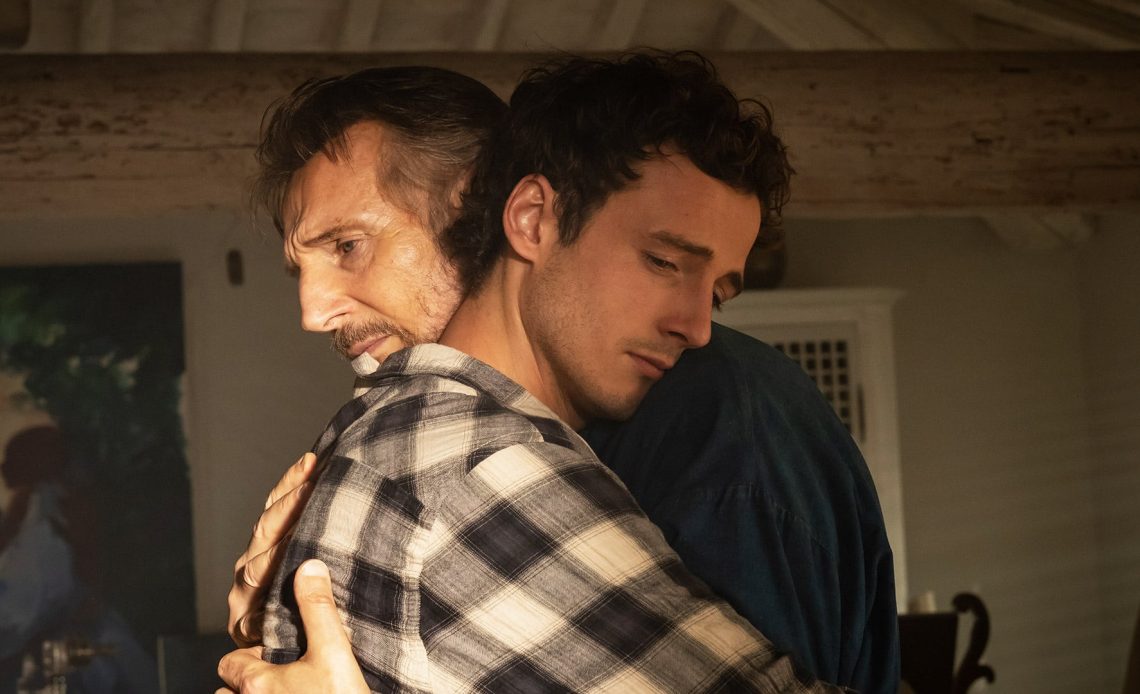Young Jack (Micheál Richardson) is getting divorced and is in need of money. Too much money and fast, a big amount he doesn’t have. This is why he convinces his father, Robert (played by Liam Neeson), a bohemian artist, to travel with him to beautiful Tuscany in Italy to sell an old home they inherited from their deceased mother/wife.
The plan seems pretty straightforward at first, but it soon becomes apparent that it is easier said than done. After twenty years untended, the beautiful Tuscan villa is now in a decrepit condition, and fixing it up will be a challenge. Especially because the father and son’s relationship is as damaged as the property.

That’s the story behind Made in Italy, the filmmaking debut of actor-turned-director James D’Arcy, famous for his part in Dunkirk (2017), Agent Carter (2015-16), and Avengers: Endgame (2019).
Italy appears in the title of this comedy-drama, and is where most of the filming was located, but the film is not focused on the country. Made in Italy is about grief, regret and broken families. It’s about a lack of communication and old wounds, never healed. It’s a movie about the importance of forgiveness and open conversations. It’s a movie full of symbolism: as Robert and Jack join efforts to fix the ruined villa, they will slowly start mending their relationship.
It can be a bit shocking at first to see Liam Neeson perform in a production so far away removed from the action movies we’re all used to seeing him in. However, Neeson unleashes all of his charm and charisma and excels in his portrayal of Robert Foster, a reclusive but charismatic artist who succeeds in fascinating everyone, but is unable to maintain a normal, healthy relationship with his son, Jake.
Neeson stars in the film with his real son, Micheál Richardson and not surprisingly, the chemistry between them is tangible, and the scenes they perform in together are smooth and feel extremely honest. The choice of actors is also interesting and powerful because both Liam and Michéal are familiar with the pain Jack and Robert are going through. In 2009, Natasha Richardson, wife of Neeson and mother of Michéal, tragically died after a skiing accident.

Next to his veteran father, Richardson’s acting cannot help but feel somewhat less convincing. It feels inevitable that having such a highly experienced actor as Neeson, all other performances will pale in comparison to his. It doesn’t help that Jack’s character feels a bit contradictory. He always looks moody and awkward, is struggling to accept his divorce and seems incapable of having fun. However, he then quickly jumps into an opportunity for new love when he meets Natalia, an enchanting Italian chef.
Valeria Bilello does a good job as Natalia, a divorced mother with a complicated relationship with her ex. She is smart, charming and a hard worker, but her character falls short. There seems to be a secondary storyline about Natalia and her malicious ex, but the plot is never developed. Jack and Natalia’s love story is extremely predictable, and this can be applied to the whole film, where little comes as a surprise.

Some scenes and characters feel out of place or over the top. Robert, Jack and Natalia share a meal with very intense spaghetti eating, which is a bit bizarre. Jack is clumsy, but his pratfalls fail in their attempts at being funny. And a few characters feel exaggerated, especially the potential buyers of the house. An eccentric woman who feels the energy of the place and a very rich and snobby couple, with a wife who seems more interested in looking good in the selfies she’s taking rather than discovering a home that could be hers.
If predictable, the film is also heartwarming and moving, and full of interesting symbolism. Not only between the state of the villa and the father-son relationship; also with the interior of the house. The household is empty, cleaned up of anything related to the dead mother. This has a resonance with Jack’s empty memories. His mother died when he was little and he cannot remember much about her. In what is clearly the most moving scene in the film, Robert states that while Jack is tormented by the inability to remember, his suffering is not being able to forget.
Fun Fact:
The day he graduated from London Academy of Music and Dramatic Art (LAMDA), director James D’Arcy left his diploma on a bus.




COMMENTS